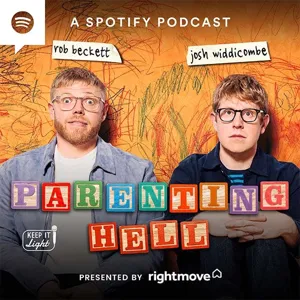Podcast Summary
The mind-body connection during stressful times: Prioritize physical activity and create a conducive learning environment to maintain focus and reduce stress during uncertain times. Recognize and address the strong mind-body connection.
The connection between our minds and bodies is stronger than we may realize, especially during times of stress like the COVID-19 pandemic. Dr. Seon Bilak, a psychologist and president of Barnard College, emphasizes the importance of embodied cognition, which highlights the two-way communication between our mental and physical states. Our body position, sleep, and exercise can significantly impact our emotions and cognitive abilities. With many people sheltering in place and dealing with the challenges of remote learning, Dr. Bilak advises prioritizing physical activity and creating a conducive learning environment to help maintain focus and reduce stress. Additionally, she emphasizes the importance of recognizing and addressing the strong mind-body connection during these uncertain times.
Parents' attitudes towards math influence children's learning: Parents' math anxiety can impact kids' academic performance and attitude towards math. Focus on fostering a positive attitude, emphasizing practice and progress, and using fun activities to improve children's math skills and confidence.
During these challenging times, it's crucial for parents to give themselves and their children a break from excessive academic pressure. Parents should remember that their attitudes towards subjects like math significantly impact their children's learning. Research shows that parents' math anxiety can influence their kids' academic performance and attitude towards math. Parents who struggle with math themselves may unintentionally transmit their anxiety to their children, leading to less engagement in math activities at home. Instead, parents should focus on fostering a positive attitude towards math, emphasizing the importance of practice and progress over perfection. Engaging in fun and interesting math activities with their children, such as using apps like Bedtime Math, can help improve their children's math skills and confidence. By modeling a growth mindset and encouraging persistence, parents can make a significant difference in their children's academic and social development.
Supporting Lower Income Students During COVID-19: Parents can create engaging learning environments, ask about schoolwork, and set breaks for lower income students during COVID-19 to mitigate educational challenges. Establish routines, create relaxing surroundings, and set tech boundaries for mental and physical well-being during sheltering in place.
The COVID-19 pandemic poses unique challenges for lower income students in their education, potentially widening the achievement gap. Parents can help by creating engaging learning environments, asking about their children's schoolwork, and setting aside time for breaks. Sheltering in place can negatively impact our minds and bodies due to lack of movement and change of surroundings. It's crucial to establish routines, create relaxing surroundings, and set boundaries with technology use. At institutions like Barnard, with its focus on empowering women and having around 2,400 students, the pandemic has necessitated mandatory pass/fail grading to ensure educational equity for all students. Larger institutions like Columbia University and beyond are also facing significant disruptions, with students and faculty adapting to remote learning.
Barnard College's Community Thrives in Remote Learning: Barnard College prioritizes student connections, offering extra seminars, accommodating time zones, and collaborating with other colleges to ensure a strong community during remote learning.
Barnard College, a liberal arts institution under the umbrella of Columbia University, has effectively adapted to the challenges of remote learning by maintaining interconnectedness and community among students. Despite the rapid transition to online classes, students value the connections they make with faculty and peers. Barnard's faculty has gone above and beyond, offering extra seminars and accommodating various time zones. Students have expressed the importance of these connections, especially during times of isolation. The university community is also collaborating with other colleges to share best practices and ideas. Barnard made decisions ahead of many institutions, such as implementing pass/no pass grading and allowing students to stay on campus if needed. With about 150 students remaining on campus out of the usual 24,100, Barnard continues to provide support for those in need. The college's commitment to its students extends beyond the two semesters, making it a lifelong community for alumni.
Barnard College's Adaptations to COVID-19: Barnard College implemented apartment-style living, went test-optional, refunded room and board, and provided academic experiences during the pandemic, making it a selective institution with over 900 applications for 600 spots.
Barnard College has adapted to the challenges of the COVID-19 pandemic by implementing apartment-style living arrangements for students while maintaining social distancing, consolidating essential workers' shifts, and building a strong class for the incoming year. Barnard received over 94 hundred applications for around 600 spots, making it one of the most selective colleges in the country. In response to the difficulties students may face in taking standardized tests, Barnard will be test-optional for the next application cycle. Some universities are facing lawsuits from students seeking refunds of tuition and fees due to the lack of on-campus experiences, while colleges and universities are experiencing significant financial losses. Barnard has refunded room and board to students who left and is providing academic experiences for students. The college also announced that it will pay the summer contribution for all incoming and continuing students. Additionally, Barnard's popular Summer Research Institute, which funds students to live on campus and work in a lab, was postponed this year due to the pandemic.
Barnard College invests $3M in financial aid during pandemic: Barnard College invests in students during pandemic, prioritizing residential college experience, and preparing for fall with open dialogue leadership style.
Barnard College invested $3,000,000 to support financial aid students during the pandemic, recognizing the strain on their ability to make summer contributions. Looking ahead to the fall, the college plans to return to campus but is also preparing for contingencies. The value of the residential college experience is evident, as students and parents eagerly anticipate a return to campus. Psychology plays a significant role in the president's leadership style, which emphasizes diverse opinions and open dialogue to make the best decisions. Although she had to largely leave research behind to focus on her presidency, she found ways to integrate her academic background into her role.
Relaxing expectations during uncertain times: Give yourself permission to feel anxious and be kinder to yourself during uncertain times. Reflect on self-talk and focus on what's within your control.
During uncertain times, it's essential to give ourselves a break and relax our expectations. Dr. Beilock, a professor at Barnard College, emphasized this during a recent virtual class where she discussed her research on performance under stress. She shared that being a faculty member or scientist contributes to effective leadership. For students and parents feeling anxious, Dr. Beilock advised that it's natural to experience anxiety during uncertain times and encouraged giving oneself permission to feel anxious without putting excessive pressure on oneself. She suggested reflecting on how we speak to ourselves and being kinder to ourselves, as we would be to a friend. By acknowledging the challenges and focusing on what we can control, we can navigate through the uncertainty. The American Psychological Association, through its podcast "Speaking of Psychology," continues to provide valuable insights into psychology's role in understanding and coping with the COVID-19 pandemic.






